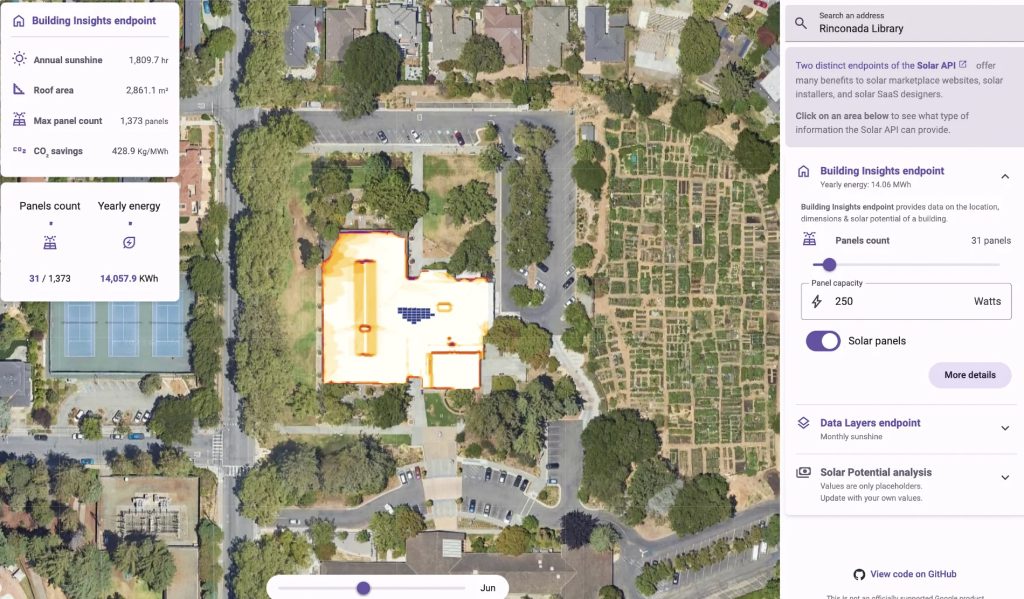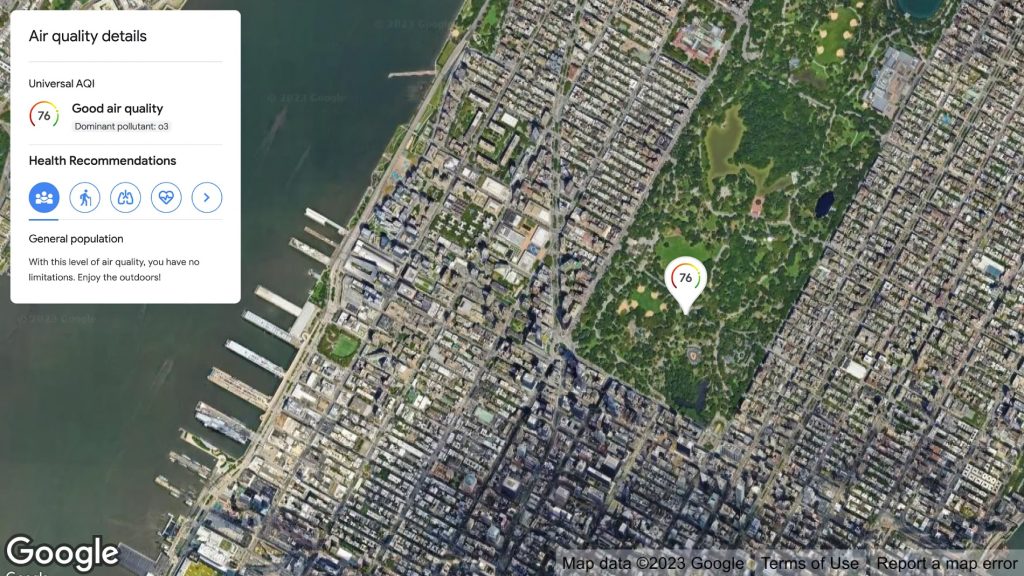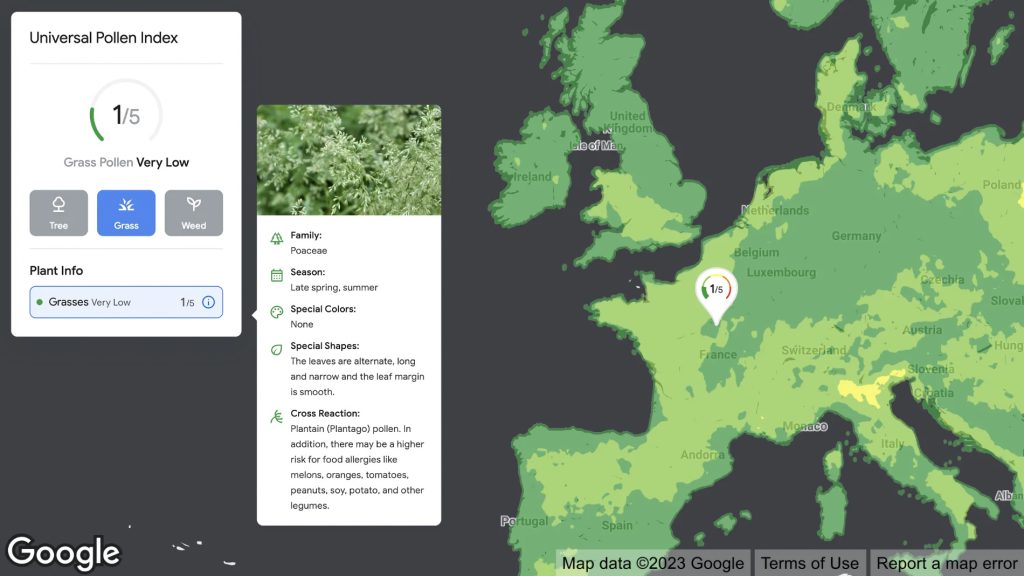
In a bid to further its commitment to environmental sustainability, Google has announced the launch of a suite of new sustainability APIs at the Google Cloud Next event.
The new APIs provide developers with real-time insights into solar potential, air quality, and pollen levels, aiming to collectively reduce carbon emissions by 1 gigaton annually by 2030.
One of the highlights is the Solar API, an evolution of Google’s 2015 Project Sunroof. This initiative harnessed location, sunlight, and navigation data to estimate the energy generation of solar panels installed on roofs worldwide.
Building upon this foundation, the Solar API employs advanced AI models and modern mapping techniques to analyse rooftop angles, slopes, shade from nearby trees, and historical weather data. This enables accurate predictions of solar energy production without the need for on-site inspections, benefitting both homeowners and solar installation companies.

Yael Maguire, VP and GM of Geo Sustainability at Google, said: “Demand for solar has been rising a lot in recent years… we saw a lot of opportunity to bring this information and technology to businesses around the world.”
Expanding on its environmental initiatives, Google is also extending the Air Quality layer into a dedicated API.
The Air Quality API, initially proven crucial during the 2021 California Wildfires, aggregates data from various sources—including government monitoring stations, meteorological data, sensors, and satellites.
By consolidating this vital information, the Air Quality API provides both local and universal air quality indices that account for factors such as traffic conditions and vehicle volume. Industries such as healthcare, automotive, and transportation can leverage this API to offer users precise and timely air quality information, enhancing public health awareness and safety.

In addition, Google’s evolution of the pollen-tracking Maps layer into a comprehensive API addresses the effects of climate change on pollen production.
The Pollen API tracks the seasonal release of pollen-producing plants across more than 65 countries, considering local wind patterns and annual trends. This data empowers users with detailed allergen information, local pollen count data, and heatmaps indicating areas with the highest pollen levels.
Travel planning apps, among others, will be able to utilise the Pollen API to aid users in making informed decisions about their daily commutes, vacations, and more.

The suite of sustainability APIs reinforces Google’s dedication to combining technological innovation with environmental responsibility. Developers will be able to access these APIs starting from 29 August 2023.
(Photo by Ross Stone on Unsplash)

Looking to revamp your digital transformation strategy? Learn more about Digital Transformation Week taking place in Amsterdam, California, and London.
Explore other upcoming enterprise technology events and webinars powered by TechForge here.







